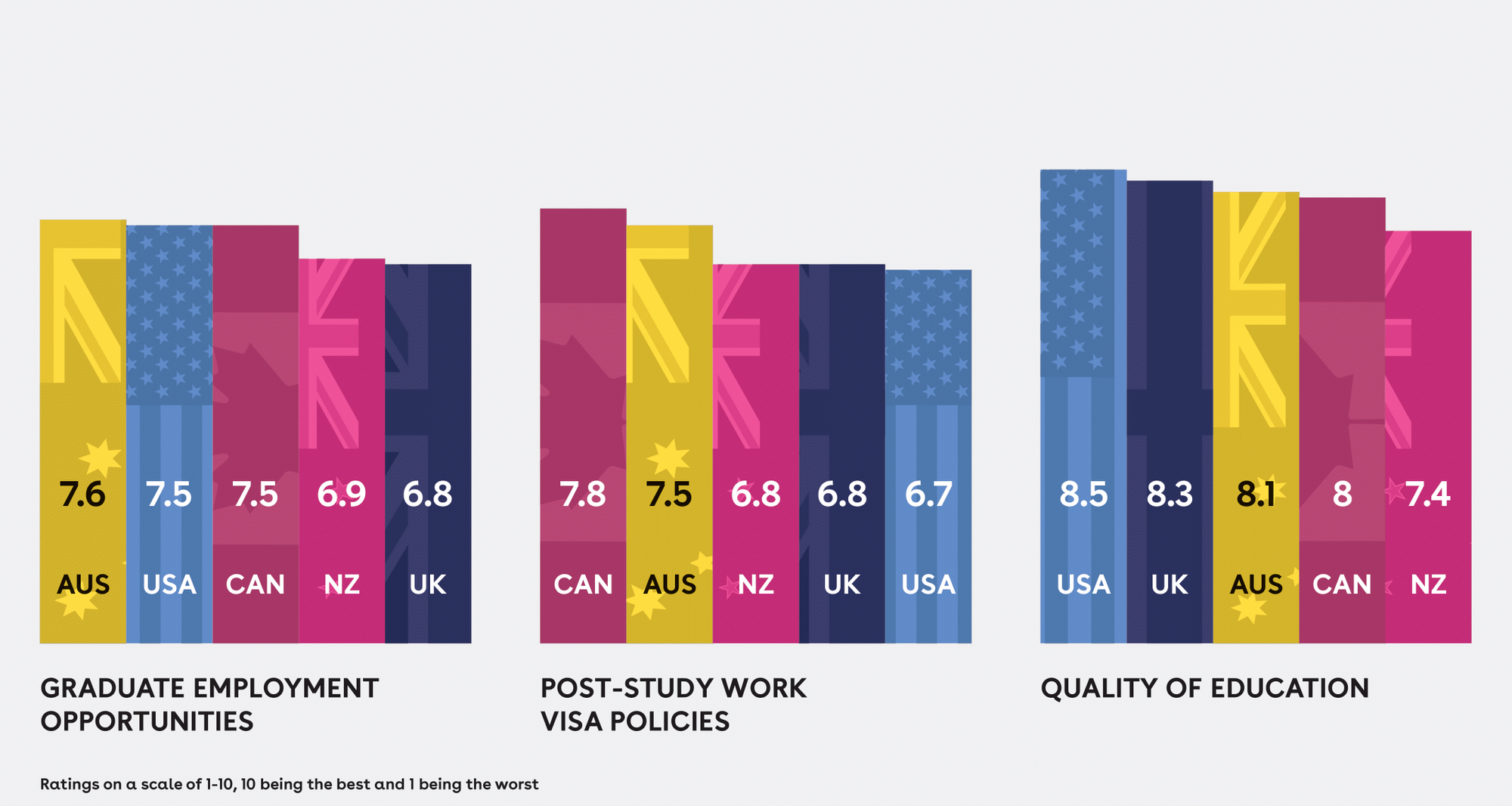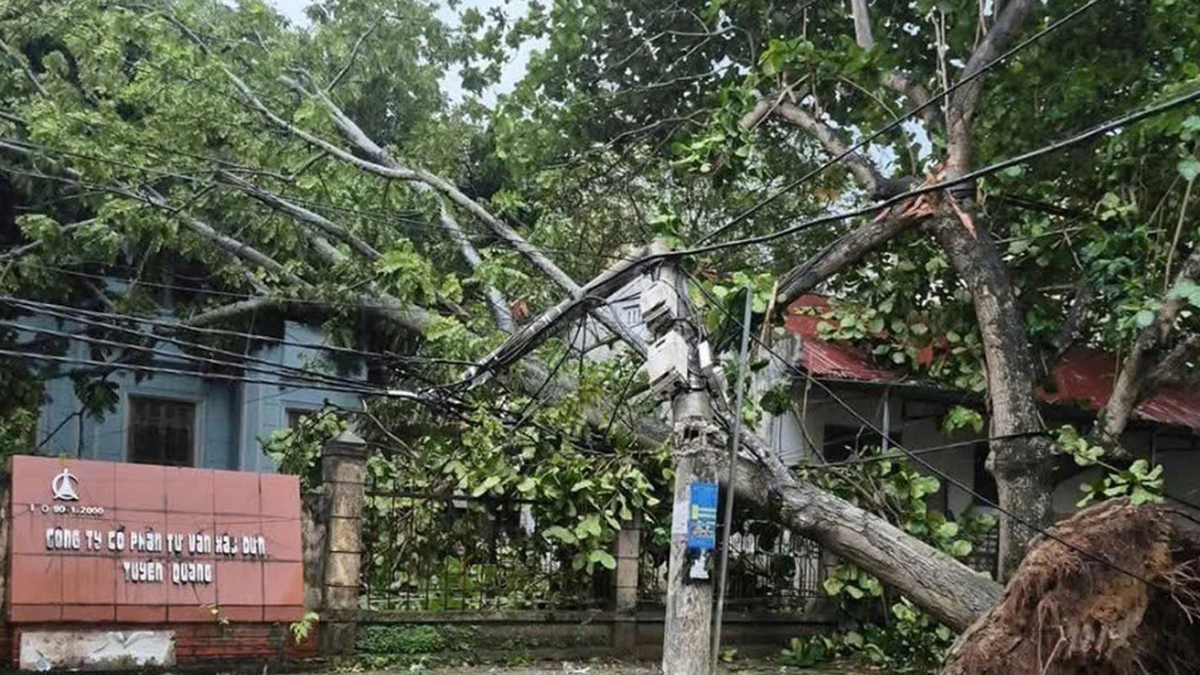
Among the five most popular English-speaking countries, Australia and Canada are the top study abroad destinations for international students, according to the latest research.
Factors influencing the decision to study abroad
IDP on October 11 released the "Emerging Futures 4" report, conducted from July 19 to August 21, with the participation of more than 10,000 potential international students, applicants, current students and graduates from 98 countries. The study focused on popular English-speaking study abroad markets such as the US, Australia, Canada, the UK and New Zealand.
The survey results show that Australia and Canada are the top choices for studying abroad, both at 25%. This means that for every 4 international students, 1 will choose Australia or Canada as their first destination when deciding to "take off" to study abroad. The following countries are the UK (22%), the US (19%) and New Zealand (4%).
According to the research data, there are 6 factors that influence the decision of international students to choose a destination, including high-qualityeducation (accounting for the highest percentage of 62%); open job opportunities after graduation (47%); safe environment for international students (45%); support for international students (43%); attractive educational institutions (40%); countries welcoming foreigners (40%).
The US leads in terms of education quality, while New Zealand is at the bottom of the five countries ranked. On the other hand, Canada ranks first in terms of post-graduation visa policies, followed by Australia and finally the US. Australia is rated by international students as having the most job opportunities after graduation, tied for second place with the US and Canada, while the UK is considered to have the least opportunities.

Rankings and scores of English-speaking countries in each category, from left to right: graduate employment opportunities, graduate employment policies and quality of education
Explaining Australia's top position in terms of employment opportunities, Ms. Catriona Jackson, CEO of Universities Australia, said the country needed more international students than before to address the ongoing labor shortage in all aspects of the economy . "The Australian Government needs to have more policies to create conditions for more talented people to stay in Australia," Ms. Jackson told The PIE News .
Simon Emmett, CEO of IDP Connect, said the survey results warn countries not to rely solely on world university rankings to attract students. "Changes in policy, the dynamic transformation of educational institutions or the global economic situation can all impact on country rankings. Global competition between study destinations remains high and employment opportunities after graduation are one of the important drivers," said Mr. Emmett.
"Portrait" of Vietnamese international students
In September, IDP also published a report on the "portrait" of international students in a number of developed source markets, including Vietnam. Specifically, Vietnamese people are said to not consider distance or geographical location as a barrier when choosing a study abroad destination, and at the same time want to access the best education, with 72% saying that the "high quality of education" factor is the reason why they "finalize" their first study abroad destination.
On the other hand, security is also a major concern for Vietnamese international students, as shown by the fact that 55% of students prioritize countries with a safe environment for international students. In addition, factors such as having policies to support international students and welcoming foreigners also account for a high percentage, at 50% and 49%, respectively. This is completely different from China or the Philippines, which consider more job opportunities.

Vietnamese parents and students receive advice from a representative of a top Australian university.
Regarding financial situation, 42% of Vietnamese students said that scholarships will finance their studies, while the remaining 32% have to cover part of their study costs. Financial resources from parents also play a significant role. However, high budget, including tuition and living expenses, is still the biggest challenge for Vietnamese students, according to Ms. Truong Thi Mai Phuong, representative of IDP Vietnam.
"Therefore, Vietnamese people mainly look for scholarships to solve these challenges, especially to reduce tuition fees," said Ms. Phuong.
According to IDP, to attract Vietnamese students, educational institutions may need to provide more financial support services as well as add more types of scholarships to their recruitment strategies. Because many Vietnamese students share that they will choose the educational institution that offers the best scholarships or grants.
Source link

































































































Comment (0)